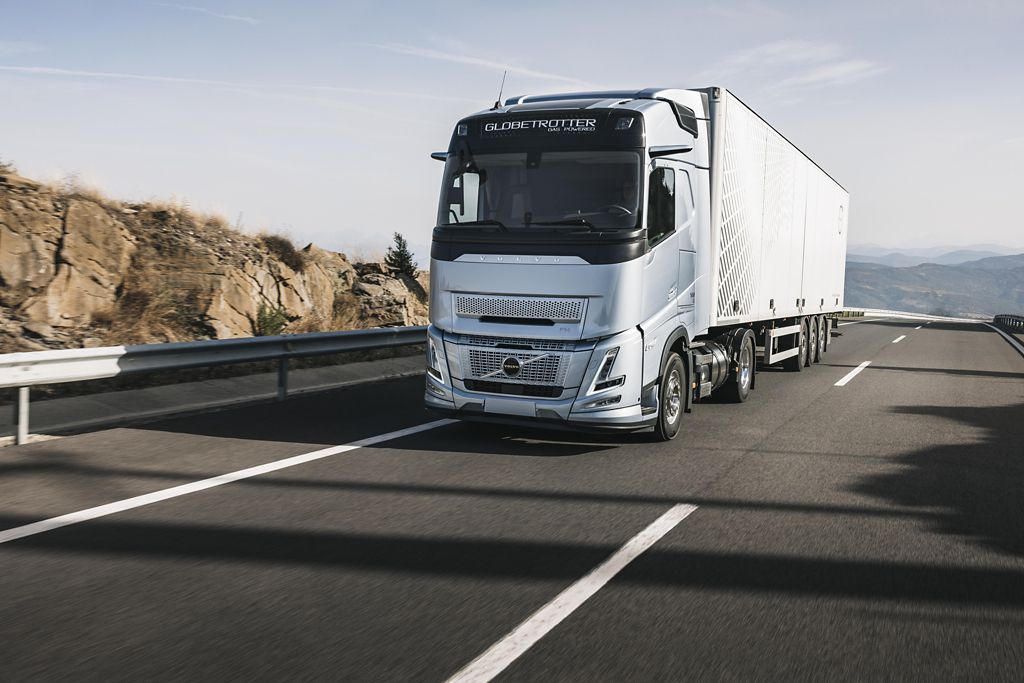Volvo Trucks ramps up the use of low-CO2-emission steel


Volvo is now ramping up the use of low-CO2-emission steel in its trucks. Volvo was the world’s first truck manufacturer to introduce this type of steel in its electric trucks in 2022. Now the company is expanding the use of low-CO2-emission steel to include all drivelines.
The new steel is produced by the Swedish steel company SSAB and called SSAB Zero. It is made from recycled material and produced using fossil-free electricity and biogas. As a result, CO2 is reduced by around 80% compared to the production of conventional steel using fossil energy.
Next year, the frame rails in around 12,000 Volvo FH and FM trucks will be made of low-CO2-emission steel. This will result in savings of 6,600 tons of CO2 Equivalents**. As the availability of low-CO2-emission steel increases, it will be introduced in more truck models as well as in other parts of the truck.
Volvo is also planning to replace other materials in its trucks with lower emissions alternatives.
“This is an additional step towards our zero emissions vision. Steel is one of the main materials in our trucks. We are also looking to exchange other materials, such as aluminium and plastic, to low emission alternatives. We are proud to lead the way in the industry when it comes to sustainable material in our trucks,” says Jan Hjelmgren, Senior Vice President Product Management and Quality, Volvo Trucks.
Half of the truck consists of steel
The potential for lowering CO2 emissions is high as almost half of the truck consists of steel (47% of a Volvo FH diesel truck), and it represents about 44% of the CO2 emissions from the production (cradle to gate) out of the total 21 tons CO2 Equivalents for the Volvo FH diesel.
Volvo Group is collaborating with several suppliers around low-CO2-emission steel. Low-CO2-emission steel will be an important complement to the traditional and recycled steel used in Volvo’s trucks.
Volvo Trucks is committed to the Paris agreement and to achieving net-zero greenhouse gas emissions in the supply chain by 2040, at the latest.
“We are continuously striving to further minimize our climate footprint. We are also moving towards greater circularity in both our operations and our trucks. Many of our factories, transports and dealers are today running on renewable energy,” says Jan Hjelmgren.
Facts:
The main materials in a Volvo FH diesel truck are steel (47%), cast iron (26%), polymers (11%) and aluminium (8%). They stand for around 44%, 26%, 14% and 8% of the CO2 emissions from the production (cradle to gate) out of the total 21 tons CO2 Equivalents for the Volvo FH diesel.
* Low-CO2-emission steel is a steel with a significant reduction of CO2 (80% or more) from cradle to gate
** CO2 Equivalents includes all greenhouse gas emissions including e.g methane
LINK to high resolution images
Helena Lind
Media Relations Director, Volvo Trucks
Email: helena.lind@volvo.com
Tel: +46 765 53 62 57
Press images and films are available in the Volvo Trucks’ Media Hub: https://media.volvogroup.com/dam
Volvo Trucks supplies complete transport solutions for discerning professional customers with its full range of medium- and heavy-duty trucks. Customer support is provided via a global network of dealers with 2,200 service points in about 130 countries. Volvo trucks are assembled in 12 countries across the globe. In 2024, approximately 134,000 Volvo trucks were delivered worldwide. Volvo Trucks is part of the Volvo Group, one of the world’s leading manufacturers of trucks, buses, construction equipment and marine and industrial engines. The group also provides complete solutions for financing and service. Volvo Trucks’ work is based on the core values of quality, safety and environmental care.